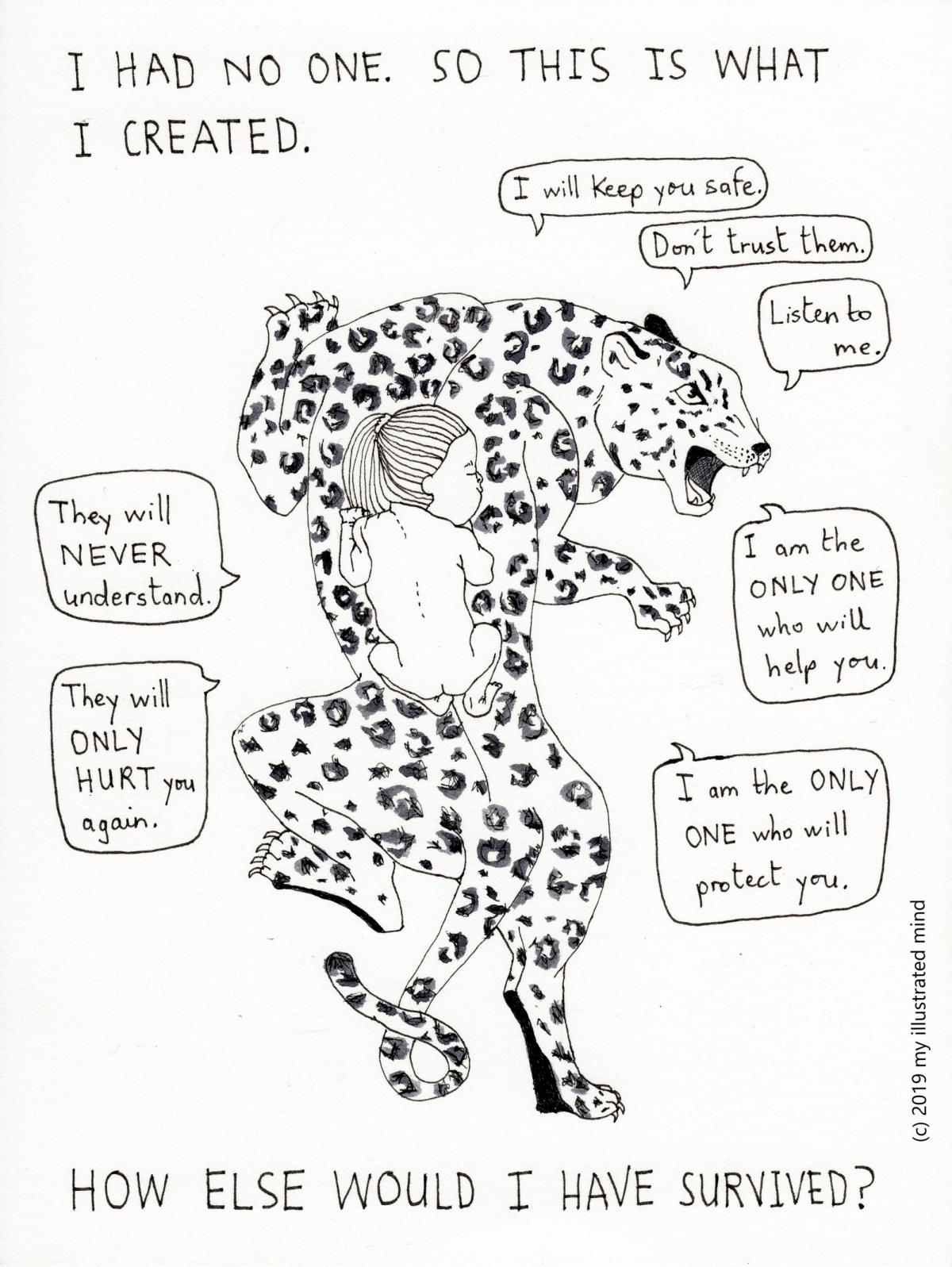
“Art is restoration: the idea is to repair the damages that are inflicted in life, to make something that is fragmented - which is what fear and anxiety do to a person - into something whole." Louise Bourgeois
One day a few years ago, I got out a piece of paper and I drew how I was feeling. I did this because I felt so frustrated by the relentless cycle of turmoil I was experiencing, and because I couldn’t seem to show other people just how much agony I was in. I drew one moment, and then another, and another. I kept going because it made me feel better, and it gave me a powerful way to explore and communicate my inner world.
I use illustration as a tool to untangle my experiences, on a cognitive, emotional and behavioural level. It helps me reach into my past, to figure out why these experiences have come about; and it helps me examine the here and now, to figure out what impact these experiences are having in my adult life. Doing this helps me understand why I feel such agony, and why it is so hard to break out of these self-perpetuating cycles. Through all of these things, illustration helps show me how to navigate forward, to find emotional healing.
I’ve never studied art; I come from a medical background and did a PhD in microbiology. My world was about numbers, statistics, looking for tried and tested patterns, and grouping things into distinct categories. Absolutely these approaches have a place, and are especially essential when needing to rapidly process large amounts of information in high risk environments. But it didn’t give me a good way to process my inner world of chaotic and conflicting thoughts and feelings. Thankfully illustration did.
I think creative methods are so powerful in this way because they don’t dilute the intensity, depth, and complexity that are characteristic of emotions, and they better facilitate freedom of expression.
In response to how people have been using my work, I am creating a set of therapeutic conversation cards, to act as an educational, therapeutic and communication tool that can be used in personal and professional settings. I’m developing workshops with the aim of helping others explore using illustration as a way to understand their own thoughts and feelings, like I have. I’m also exploring routes that will allow me to use what I’ve learnt to teach health professionals.
My motivation for all of this is because, through my own experiences and listening to those of others, I’ve learnt just how acute the need is to change the too often stigmatised narrative that surrounds mental health issues, and just how vital creative expression is for our mental health. I think better education is ultimately the way forward – but how do we do this? Harnessing the power of art borne out of lived experience is surely something that can help us
Dr Kathryn Watson is a self-taught artist and former medical doctor. She currently works part-time in communications at the McPin Foundation, a mental health research charity, and co-delivers creative wellbeing workshops at City and Hackney Recovery College. Alongside this, she will soon be starting work as a co-researcher on a mental health and heritage research study. To see more of her work, please visit her website, my illustrated mind, Twitter or Instagram .
